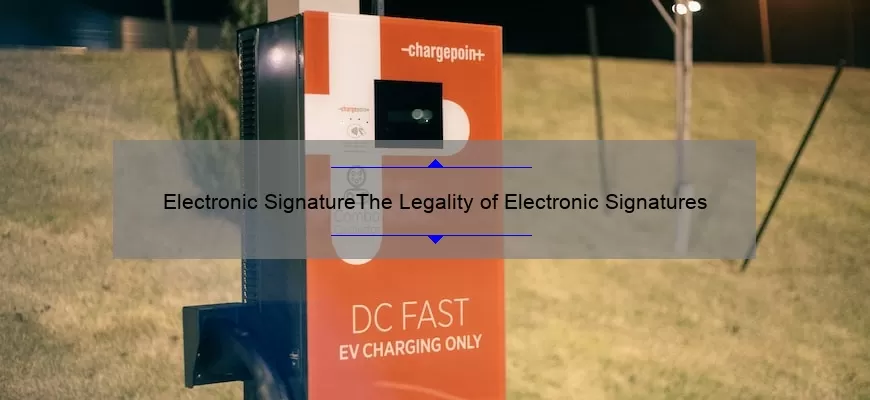What is an Electronic Signature?
An electronic signature, also known as an e-signature, is a digital version of a traditional handwritten signature. It is used to signify an individual’s agreement, approval, or acceptance of an electronic document or digital transaction. Electronic signatures are recognized as legally binding in many countries and have been used for some time in the United States and other countries with many different types of contracts and agreements.
The use of electronic signatures has revolutionized the way businesses, organizations, and individuals sign contracts and other documents. Now, instead of having to print out hard copies of documents and sign them manually, it’s possible to sign documents digitally, with just a few clicks of the mouse. This saves time, money, and space, and is much more secure than traditional methods of signing documents.
The technology behind electronic signatures
What Makes an Electronic Signature Legally Binding?
An electronic signature, also known as an e-signature, is an electronic symbol or process that is used to sign an agreement or document. It is legally binding in most countries, including the United States, and is used to verify the identity of the signer and verify that the document has not been altered.
An electronic signature is typically made up of two components: a cryptographic signature and a digital signature. The cryptographic signature is a mathematical proof that the signer has read and agreed to the document, while the digital signature is a unique code that is attached to the document to verify its authenticity.
To be considered valid and legally binding, an electronic signature must meet certain criteria. The signature must be unique to the signer and must be attached to the document in a way that it cannot be altered or changed. Additionally
What Types of Documents Can Use Electronic Signatures?
Electronic signatures are becoming an increasingly popular method for signing documents in the digital age, as they provide a secure and legally binding way to get documents signed without having to physically meet. But what kinds of documents can use electronic signatures?
At the most basic level, an electronic signature is any type of signature that is made electronically, usually using a signature pad or a computer. This signature can be used to sign a variety of documents, both online and offline, such as contracts, invoices, employment documents, and other legal documents.
When it comes to legal documents, electronic signatures can be used to sign contracts, wills, powers of attorney, nondisclosure agreements, and more. These documents are often required to be signed and witnessed in order to be legally binding, but with the use of an electronic signature, they
What Are the Benefits of Using Electronic Signatures?
The use of electronic signatures is becoming increasingly popular in the business world. This is due to the fact that they offer numerous advantages over traditional paper signatures, including convenience, cost savings, and security.
Convenience: Electronic signatures provide a convenient way for businesses and their customers to sign documents without having to be physically present. This is especially helpful for companies that have multiple locations or customers who are located far away. Additionally, electronic signatures are faster than traditional paper signatures, which can take days or weeks to process.
Cost Savings: By eliminating the need for paper, ink, and other supplies associated with traditional paper signatures, businesses can save time and money. Additionally, electronic signatures can reduce the amount of time spent manually processing documents, which can save businesses even more money.
Security: Electronic signatures are much more secure than






